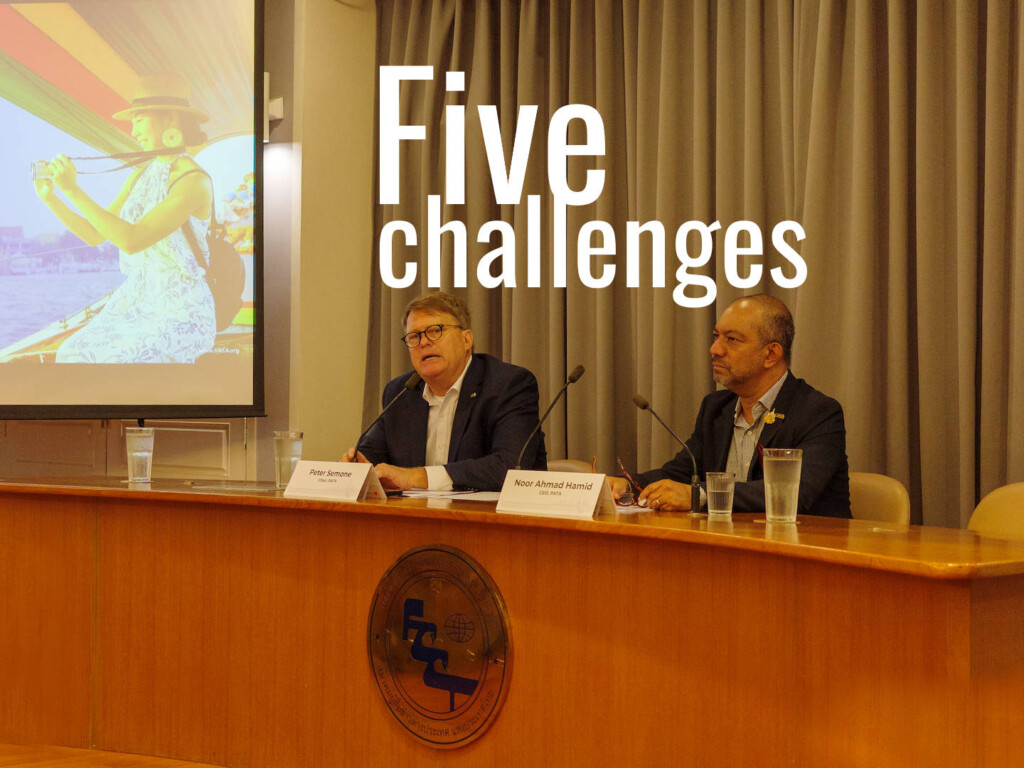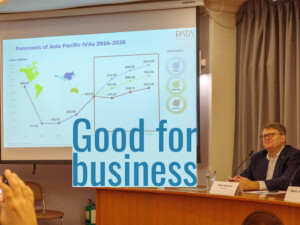Five key challenges for the travel & tourism industry: PATA Chair

Pacific Asia Travel Association (PATA) Chair Peter Semone identified five key challenges for the travel & tourism industry during a media briefing on the eve of PATA Travel Mart 2024:
Crises of all sorts
“There will be more crises,’ Mr Semone said. “Health crises, natural disasters, and political unrest. They all affect tourism.
“Remember, tourism is arguably the only export product in which the purchaser has to consume the product at the point of production. Most other export products can be packed onto a container and delivered to the purchaser.
“PATA is helping our members to improve their resilience through our Destination Resilience Training.”
Tourism’s invisible burdens
With the “threat of overtourism” and the “invisible burdens of tourism” making themselves known, “the days of ‘greenwashing’ are nearing an end,” the PATA Chair asserted.
“The trend of consumers demanding improved sustainability will continue. Power has shifted to travellers, who can now share opinions with a global audience before, during, and after a trip, influencing the choices that future consumers will make.
“Booking.com now shows third-party sustainability certifications (Green Destinations, Travel Life, etc). In a survey of 29,000 travellers, half believe there are not enough sustainable tourism options.
“The tourism sector also accounts for 10.6% of global energy consumption due to continued reliance on fossil fuel transportation, particularly by the aviation industry.
“Looking ahead, reducing this energy footprint will require both new sources of energy (substituting oil-derived fuel sources with more sustainable fuels and electricity) as well as further reductions in energy [use].”
For accommodation providers, Mr Semone encouraged local efforts and incentives to help them retrofit their facilities.
“Small Island Developing States and coastal tourism destinations across our region recognise that climate change is real. The time to act is now!”
Digitalisation
Mr Semone said that the “overwhelming speed” of digitalisation is growing the divide between the haves and have-nots. Larger gaps are forming which will exacerbate poverty.
Regional conflicts
Mr Semone identified “regional conflicts in the Middle East and Europe, and threats in parts of Asia” as further cause for concern.
“PATA was founded to make a difference after one of the world’s most severe wars. So at PATA we understand that war is an existential threat; that peace is a prerequisite to sustainable tourism. ‘War has no winners and peace, no losers.’”
Human capital
“People and talent are a central driver for tourism development, a facilitator of growth, and a source of competitiveness.
“Governments are increasingly prioritising human capital and training to the same degree as marketing and infrastructure.
“Talent and skills gaps, where positions are filled by under-qualified and under-experienced staff, lead to inferior customer service and quality standards, which can result in low levels of customer satisfaction and loyalty.”
“GT” Publisher David Gillbanks is attending PATA Travel Mart 2024 as a media delegate.
Featured image (top of post)
PATA Chair Peter Semone (left) sits next to PATA CEO Noor Ahmad Hamid at a media briefing hosted at the Foreign Correspondents Club of Thailand in Bangkok, Thailand on the eve of PATA Travel Mart 2024, August 27. Pic by David Gillbanks.





